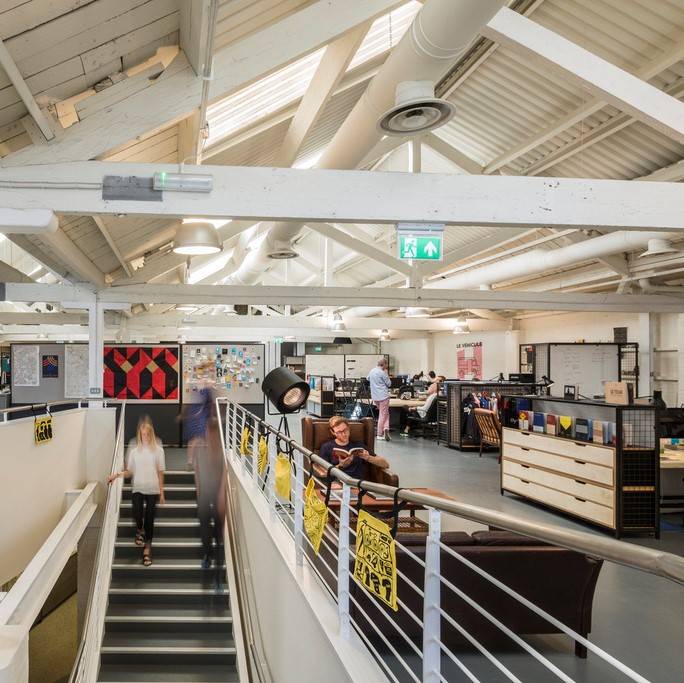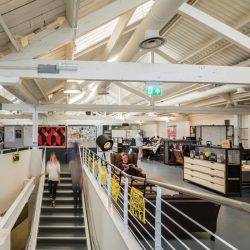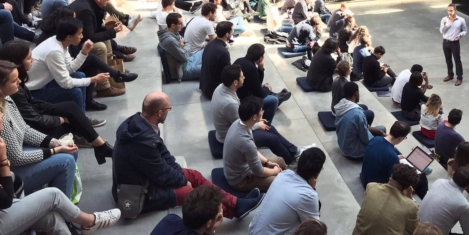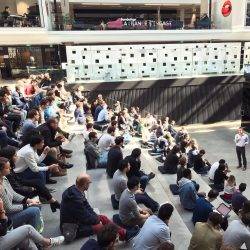To provide the best experiences, we use technologies like cookies to store and/or access device information. Consenting to these technologies will allow us to process data such as browsing behaviour or unique IDs on this site. Not consenting or withdrawing consent, may adversely affect certain features and functions.
The technical storage or access is strictly necessary for the legitimate purpose of enabling the use of a specific service explicitly requested by the subscriber or user, or for the sole purpose of carrying out the transmission of a communication over an electronic communications network.
The technical storage or access is necessary for the legitimate purpose of storing preferences that are not requested by the subscriber or user.
The technical storage or access that is used exclusively for statistical purposes.
The technical storage or access that is used exclusively for anonymous statistical purposes. Without a subpoena, voluntary compliance on the part of your Internet Service Provider, or additional records from a third party, information stored or retrieved for this purpose alone cannot usually be used to identify you.
The technical storage or access is required to create user profiles to send advertising, or to track the user on a website or across several websites for similar marketing purposes.
 A brace of new reports sets out to identify the challenges organisations set themselves by inhabiting dated offices and how modern office design principles could address them. According to the Meeting Expectations report, released by K2 Space, workplace productivity is being impeded as a direct result of dated office design. The second study from Saracen Interiors focuses more on the role of office design as a recruitment tool. The reports follow the recent publication of a major report on similar themes from Worktech Academy and Fourfront Group.
A brace of new reports sets out to identify the challenges organisations set themselves by inhabiting dated offices and how modern office design principles could address them. According to the Meeting Expectations report, released by K2 Space, workplace productivity is being impeded as a direct result of dated office design. The second study from Saracen Interiors focuses more on the role of office design as a recruitment tool. The reports follow the recent publication of a major report on similar themes from Worktech Academy and Fourfront Group.






 Workers are increasingly introducing technology devices, software and other tools into the workplace without their employer’s approval, claims a new report from NextPlane that examines the extent of this growing rift and its impact on collaboration and productivity. Nearly half of professionals (46 percent) said they or their team have introduced new technology into their workplace, and despite IT attempts to remain in control, workers are not standing down, as 53 percent said they or another team have pushed back on IT or management when they tried to dictate the technology they use.
Workers are increasingly introducing technology devices, software and other tools into the workplace without their employer’s approval, claims a new report from NextPlane that examines the extent of this growing rift and its impact on collaboration and productivity. Nearly half of professionals (46 percent) said they or their team have introduced new technology into their workplace, and despite IT attempts to remain in control, workers are not standing down, as 53 percent said they or another team have pushed back on IT or management when they tried to dictate the technology they use.




 Although the majority of business leaders rate their business as efficient, nearly a third of respondents to a recent survey waste up to 65 working days per year on administrative tasks, with over half wasting the equivalent of a working month. Priority Software’s Business Process Efficiency Index 2018 suggests business leaders are struggling to take charge of company productivity; and while senior decision-makers expressed the desire to spend more time planning for the future of their businesses, they said too much time is currently occupied by administrative tasks.
Although the majority of business leaders rate their business as efficient, nearly a third of respondents to a recent survey waste up to 65 working days per year on administrative tasks, with over half wasting the equivalent of a working month. Priority Software’s Business Process Efficiency Index 2018 suggests business leaders are struggling to take charge of company productivity; and while senior decision-makers expressed the desire to spend more time planning for the future of their businesses, they said too much time is currently occupied by administrative tasks.










 The vast majority (98 percent) of UK employees think learning is essential in deciding to stay or leave their employer, yet new research claims that three quarters (75 percent) of companies don’t have a learning culture and 66 percent don’t have a digital learning strategy. The research from Bridge in collaboration with Two Heads Consulting, finds that most businesses in the UK are struggling to engender a culture that prioritises learning and development with only 25 percent of HR staff saying their organisations have a learning culture. In comparison, three quarters of companies don’t have one at all (11 percent), are still trying to establish one (59 percent) or report it is not a priority (5 percent). Furthermore, despite recognising its importance, 60 percent of UK companies don’t measure the impact of learning on business performance. Employees also complain that their performance reviews are ill thought out and infrequent.
The vast majority (98 percent) of UK employees think learning is essential in deciding to stay or leave their employer, yet new research claims that three quarters (75 percent) of companies don’t have a learning culture and 66 percent don’t have a digital learning strategy. The research from Bridge in collaboration with Two Heads Consulting, finds that most businesses in the UK are struggling to engender a culture that prioritises learning and development with only 25 percent of HR staff saying their organisations have a learning culture. In comparison, three quarters of companies don’t have one at all (11 percent), are still trying to establish one (59 percent) or report it is not a priority (5 percent). Furthermore, despite recognising its importance, 60 percent of UK companies don’t measure the impact of learning on business performance. Employees also complain that their performance reviews are ill thought out and infrequent.







November 7, 2018
Will technology prove a threat or a godsend in the new workplace?
by Matt Weston • Comment, Technology, Workplace
(more…)